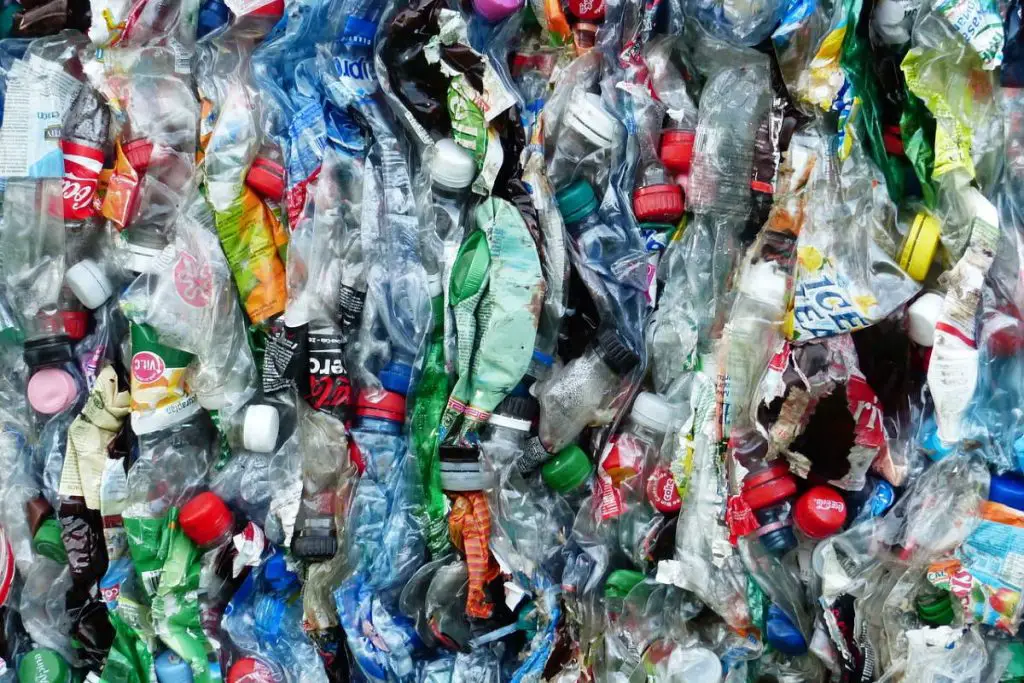Over the past 75 odd years, plastics have become an integral part of our lives. Nearly every single thing we interact with has some plastic component to it. From children’s toys to packaging to disposable dishware to the little stickers on our bananas – all of these things create plastic waste, much of it after one use.
Although plastics have fundamentally changed our lives for the better in many ways, they have also become a profoundly concerning problem. Plastics are created from non-renewable sources, either crude oil or natural gas refinements, which pose a substantial hurdle in goals to eliminate dependence upon those energy sources. Perhaps more pressing though, is the incredible amount of long-lasting waste created by single-use plastics.
Single-use plastics are, in many ways, a staple in the business industry. Fast-food chains depend upon disposable plastics to keep production lines moving swiftly. Likewise, nearly all companies ship products in copious amounts of disposable plastic wrapping to keep them from getting damaged in transit. Plastics are cheap and easy.
Fortunately, plastic use is something that some companies are taking steps to address.
A Hidden Problem
The sheer amount of plastic in the world today is staggering to think about. Since 1950, annual production has increased from 1.5 million tons to a whopping 367 million tons! Eventually, nearly all of that production ends up in a landfill at best. At worst, plastic trash lands in our open spaces, rivers, and oceans.

Some scientists estimate that microplastics – tiny pieces of disintegrating plastic – are becoming a substantial component of our oceans. Nearly 5.25 trillion pieces of microplastics are thought to exist – nearly 46,000 pieces for every square mile. Many fish and other sea life mistakenly eat the plastics, which provide no nutritional value and ultimately can lead to starvation. Over time, these impacts can work their way up the food chain and impact large predators, whales, and even humans.
Many companies and individuals are only starting to realize the profound impact they are having on the environment by using so many plastics. As a result, many are demanding changes be made to make reductions and start addressing issues. Most experts recommend reducing or replacing plastics altogether rather than incorporating greater amounts of recycled plastics. Some companies have done well at jumping on the bandwagon, while others are still lagging behind.
Replacement
Replacing plastics with alternative materials has a great deal of potential and some companies are striving to make it a profitable reality. Big-name companies and global leaders are making promises to be completely single-use plastic-free by certain dates, which means they need alternatives in their supply chains. Numerous small companies have stepped up to fill this plastic alternatives niche. For instance, they are developing completely biodegradable materials like cutlery made from sugar cane, seaweed-derived packaging, or potato bioplastics.
One alternative that really has the potential to take off in the United States is wheat straw plastics. The raw materials are those left behind after agricultural processing, which means that it uses otherwise waste materials to produce paper and plastic products. The products are every bit as capable as plastics and can even be used in the microwave and freezer.
Another alternative with a great deal of potential is hemp. Although it has received a bad rap over the years due to its association with marijuana, hemp is no mind-altering drug – rather it is a highly useful material that grows easily with few resource requirements. However, hemp has all of the natural properties to make it a great alternative to plastics for packaging, building, and everyday products.
Reduction
Aside from replacing plastics with alternative materials, simply reducing plastics can be another powerful means by which businesses can address their plastic use and help combat climate change. Eliminating the need for plastics from the system by coming up with workarounds and adjusting output can be one of the best ways to tackle our collective plastic problem.
For instance, with the rise in online shopping, shipping has gone through the roof. This has caused some companies to think more critically about their shipping supply chains such as by using technology to create greater efficiencies. Many are also addressing packaging by fitting multiple customer products in one package, choosing the right sized package for the product, and incorporating bioplastics where possible. It may not seem like a lot, but over time these changes really add up.
Packaging is perhaps the biggest area where companies can reduce the amount of plastic they use. Numerous businesses such as Amazon are working with shipping companies to design packages that reduce “box-within-a-plastic-bag-within-a-box” scenarios that eco-minded consumers find frustrating and wasteful.
Plastics significantly altered the course of human existence in many ways, both positive and negative. To better address the negative side of things, many companies are looking for means to limit their plastic use. Both replacements of plastics with more eco-friendly products and completely eliminating plastics from the process are great options that can make a profound difference.
- Miracle Drug or Snake Oil? How Consumers Can Tell the Difference - August 15, 2022
- Why Renewable Energy is a Geopolitical Issue - March 16, 2022
- Sustainable Trends in Manufacturing and Construction - January 28, 2022
